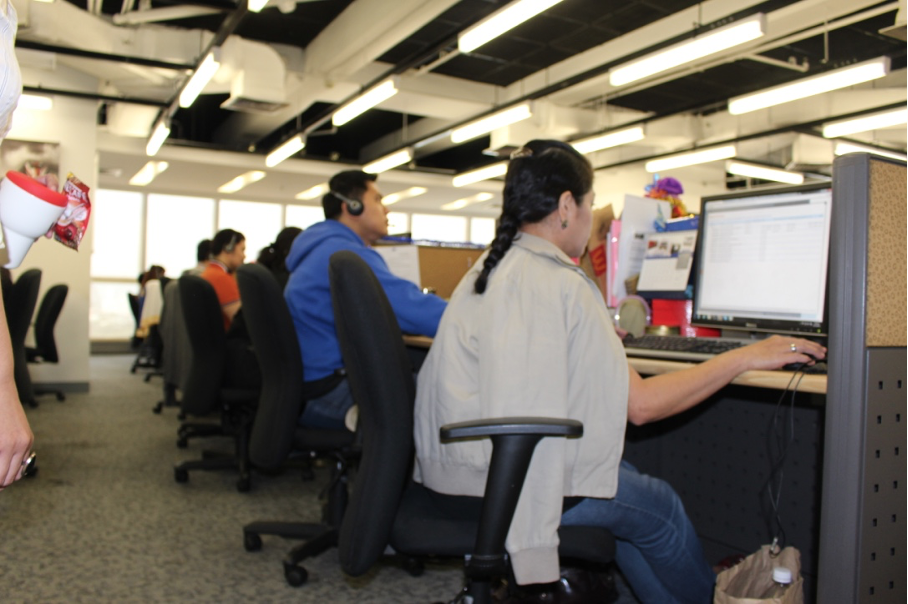The Business Process Outsourcing (BPO) industry in the Philippines started at the turn of the century, primarily driven by government policies designed to encourage investment. While many sectors took advantage of these policies, the country’s BPO industry was exceptionally well-placed to make the most of the opportunity. The combination of low labour costs and the high level of English meant the Philippines was an ideal location for offshore contact centres and BPO providers.
“Although its beginnings may have been rooted in providing low-cost outsourcing, the rapid growth of the Philippine BPO industry means the sector has matured over the last twenty years. Like any large, competitive industry, this one has moved from competing on price, where providers attempt to win business by undercutting rivals, to one in which premium providers compete on quality (people, processes, and technologies) and their domain expertise. In some ways, this has mirrored the growing sophistication of consumers,” says Ralf Ellspermann, CEO of PITON-Global, an award-winning, mid-sized BPO provider in Manila.
The consumer at the turn of the century was radically different to the consumer of the 2020s. Whether this reflects generational change or the internet creating more informed customers, it’s widely accepted that price is no longer the dominant factor in consumer choice. Instead, they are looking for something more.
“When choice is readily available and switching is easy, consumers are looking not just at the price but also at the quality of the transaction. While no customer would pay over the odds for a product or a service, they will frequently prefer to pay a premium for a service that provides high standards, and where they feel the brand values them as more than just a transaction. One prime example of this is Apple. The company’s customers are obviously prepared to pay a premium for Apple’s products and services,” says Ellspermann.
The development of BPO services in the Philippines matches the increasing sophistication of customers. The growth of the industry—there are over 800 BPO providers in the Philippines today—has been accompanied by increased expertise and specialisation. And, to service this, a large pool of experienced agents has emerged. There are over a million Filipinos employed by the BPO industry at present.
“Today, industry-leading BPOs have a clear focus on people, processes, technologies, and facilities. They pay higher salaries, knowing these attract the most experienced and proficient English speakers. Indeed, jobs in BPO companies are seen as some of the best employment opportunities in the country. Premium outsourcing providers continue to invest in the training and development of their staff, ensuring they are fully equipped for their roles and able to provide excellent service,” explains Ellspermann.
And similar investment takes place in processes and technology. This is especially true in specialised sectors like finance and healthcare, where BPOs in the Philippines are set up to meet the necessary regulatory requirements. Moreover, premium BPOs have been early adopters of technology. This is not just about ensuring reliable connections for their agents but also embracing advanced technologies such as AI, which can improve efficiency and enhance the customer experience.
Meanwhile, the customers will also benefit, having an enhanced customer experience whenever they need to contact support. They might not have been the ones to choose a BPO in the Philippines—though with the best and most fluent agents, they may never know the agent’s location—they benefit nonetheless from positive exchanges in which their queries, problems, and requests are handled effectively and efficiently.
“Today’s consumer is often choosing platforms, not products. Someone might use either Apple or Amazon to buy or rent the same movie. The product they get in either case will be identical, so their choice is often based on the customer experience,” says Ellspermann.
Once a customer has a bad experience, it’s easy for them to switch and hard for a business to win them back. Using anything but a high-quality outsourcing solution is high risk. One bad customer experience is all it takes, and it’s likely the customer will be someone else’s next time. But choosing an award-winning BPO provider such as PITON-Global in the Philippines ensures outsourcing with someone who understands and values the importance of the customer relationship.



 Bitcoin
Bitcoin  Ethereum
Ethereum  Tether
Tether  XRP
XRP  USDC
USDC  Solana
Solana  TRON
TRON  Cardano
Cardano  Lido Staked Ether
Lido Staked Ether  Toncoin
Toncoin  Avalanche
Avalanche